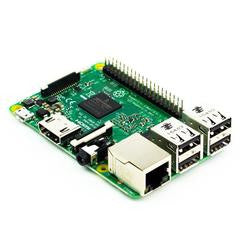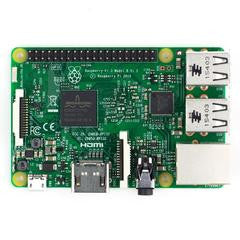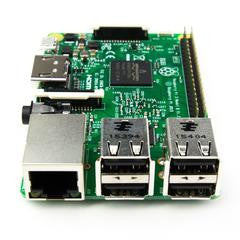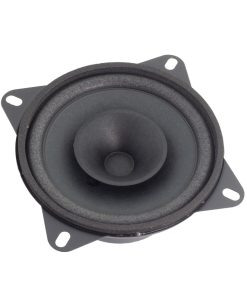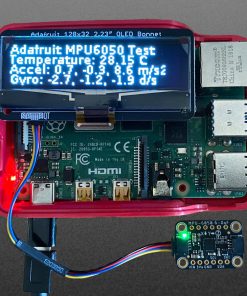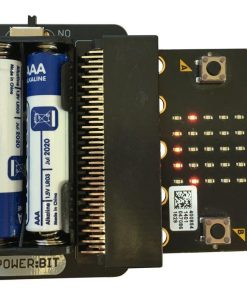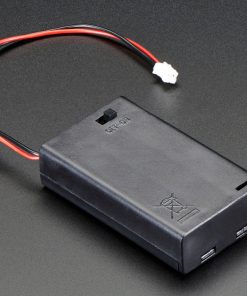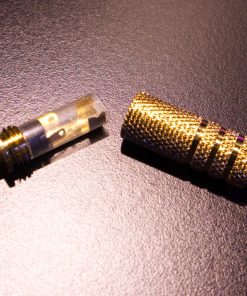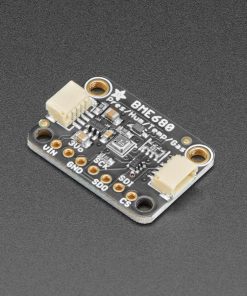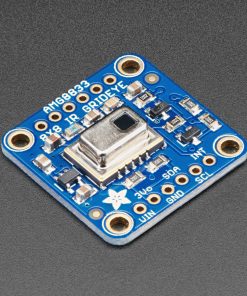Raspberry Pi 3 only Raspberry Pi
$ 54,45 $ 27,23
The Raspberry Pi 3 Model B is the third generation Raspberry Pi with a 64-bit 1.2GHz quad-core processor, 1GB of RAM, WiFi (b/g/n), and Bluetooth 4.1!
Note: The Raspberry Pi model 3B+ is the latest model, and is now available here.
See the official guide for setting up your Raspberry Pi computer.
The latest Raspberry Pi retains the same overall form factor as previous models ensuring compatibility with existing add-on boards (HATs) however some minor changes to the layout and more powerful processor mean you’ll need to use the latest Pibow case.
- 1.2GHz 64-bit quad-core ARM Cortex-A53 CPU (BCM2837)
- 1GB RAM (LPDDR2 SDRAM)
- On-board Wireless LAN – 2.4 GHz 802.11 b/g/n (BCM43438)
- On-board Bluetooth 4.1 + HS Low-energy (BLE) (BCM43438)
- 4 x USB 2.0 ports
- 10/100 Ethernet
- 40 GPIO pins
- Full size HDMI 1.3a port
- Combined 3.5mm analog audio and composite video jack
- Camera interface (CSI)
- Display interface (DSI)
- microSD slot
- VideoCore IV multimedia/3D graphics core @ 400MHz/300MHz
With the ARMv8 processor it can run the full range of ARM GNU/Linux distributions, including Snappy Ubuntu Core, as well as Microsoft Windows 10 IoT edition.
You will need the latest NOOBS image (1.8.0) for the Wireless LAN and Bluetooth drivers to be installed.
Performance
Compared with the Raspberry Pi 2 the CPU is running at a 33% faster clock rate (1.2GHz vs 0.9GHz) the more modern core also means a more efficient instruction set, especially when performing operations on 64-bit values.
Video and 3D performance has also seen a bump with the VideoCore being clocked at 400MHz for video processing (up from 250MHz) and the 3D graphics processor running at 300MHz (up from 250MHz).
In general use you can expect the Raspberry Pi 3 to perform around 50% quicker than the Raspberry Pi 2 running the same software. In the future as software adds optimisations for the architecture the gap will widen further.
Wireless LAN, Bluetooth, and oh my!
The biggest change is the inclusion of integrated Wireless LAN and Bluetooth 4.1 on board adding two great connectivity options straight out of the box. The Wireless LAN should be compatible with all home network setups and is supported in the latest NOOBs image.
We’ve achieved speeds of around 40Mbit/sec using the new built in adaptor which is similar to the speeds we see with USB Wi-Fi dongles in the same setup.
Bluetooth will allow you to use a wireless keyboard/trackpad without extra dongles, keeping things nice and tidy.
GPIO and layout
The GPIO header and layout remains the same as before so all of your existing HATs and add-on boards will work fine with the Raspberry Pi 3.
Some cases will not be ideal:
- the indicator LEDs have moved (to accommodate the Wireless LAN antenna)
- the microSD slot is no longer spring-loaded meaning a little more access space is required
- the processor benefits from a little more venting for heat management
- some of the smaller components on the board have moved
- it’s likely that cases made from metal will cause signal issues with the Wireless LAN and Bluetooth.
The latest Pibow case provides more venting, and a place for installing a heatsink if you really want to push your Pi, and to allow easier access to the microSD slot.
Fast Shipping and Professional Packaging
Because of our long-standing partnership with UPS, FedEx, DHL and many other leading global carriers, we can provide various shipping options. Our warehouse staff is highly trained and will pack the items according to our exact and precise specifications. Before shipping, your goods will be thoroughly examined and secured. We deliver to thousands of customers every day from all over the world. This is a sign of our dedication to being the largest online retailer worldwide. There are distribution centers as well as warehouses located in Europe as well as the USA.
Note: Orders with more than one product are assigned a specific processing period dependent on the particular item.
Before shipping, we will examine the items ordered carefully before shipping. The majority of orders are shipped within 48 hours. The time to deliver varies from 3-7 days.
Returns
The stock is constantly changing and cannot be fully controlled by us due to the involvement of many parties including the factory and our warehouse. This means that the actual stock could alter at any time. Be aware that it is possible that your order could be out of stock after you have made the order.
Our policy lasts thirty days. If you haven't received your item within 30 days, we're unable to offer the option of a refund or exchange.
You are able to return an item when it's unopened and is in the same condition as when you first received it. It should also be returned in its original packaging.
